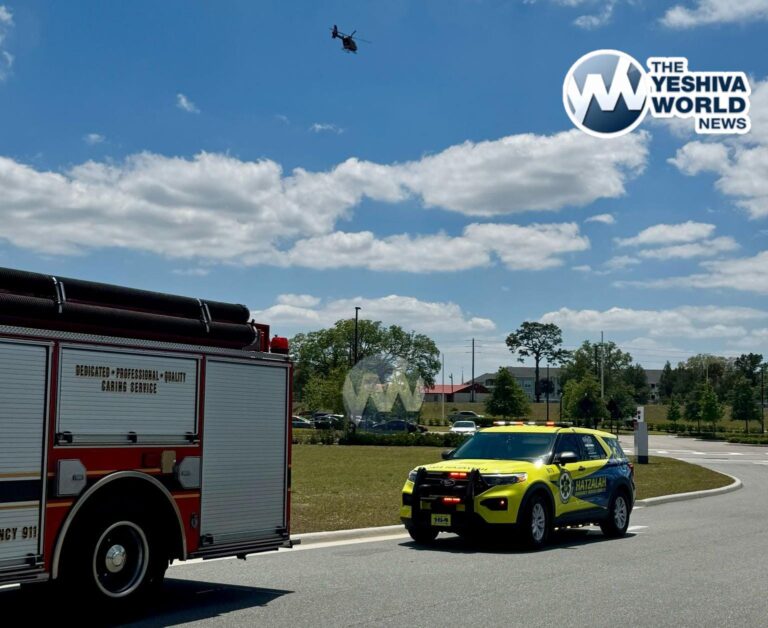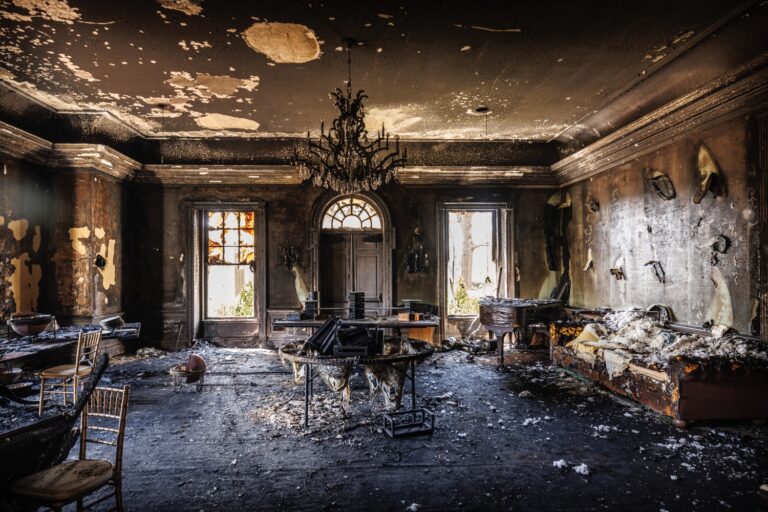 The NJ Examiner reports: A federal judge has dismissed a case brought against two Roosevelt Borough Council members by Congregation Anshei Roosevelt and Yeshiva Me’on Hatorah of Roosevelt (as reported HERE on YWN). Chief Judge of the United States District Court for the District of New Jersey Garrett E. Brown Jr., sitting in Trenton July 21, dismissed the action brought against Jeff Ellentuck and Peggy Malkin after hearing oral arguments. The shul and yeshiva sought to hold Ellentuck and Malkin liable under various civil rights laws because, according to the complaint, they allegedly “openly expressed their personal views and criticism” of the Homestead Lane shul and yeshiva.
The NJ Examiner reports: A federal judge has dismissed a case brought against two Roosevelt Borough Council members by Congregation Anshei Roosevelt and Yeshiva Me’on Hatorah of Roosevelt (as reported HERE on YWN). Chief Judge of the United States District Court for the District of New Jersey Garrett E. Brown Jr., sitting in Trenton July 21, dismissed the action brought against Jeff Ellentuck and Peggy Malkin after hearing oral arguments. The shul and yeshiva sought to hold Ellentuck and Malkin liable under various civil rights laws because, according to the complaint, they allegedly “openly expressed their personal views and criticism” of the Homestead Lane shul and yeshiva.
Ellentuck and Malkin sought a dismissal of the action brought against them on the grounds that they are entitled to complete immunity, the plaintiffs failed to state a claim, and that any claim was not ripe for adjudication.
Their attorney, Thomas Cunniff, of Fox Rothschild in Princeton, argued that neither federal nor state civil rights laws could be used to silence political opponents, even if they are public officials. He argued that federal law and the Constitution expressly protect Ellentuck’s and Malkin’s right to speak out.
According to Borough Attorney Richard Shaklee, Garrett based his decision on the Noerr-Pennington and legal immunity doctrines.
The Noerr-Pennington doctrine immunizes constitutionally protected conduct, such as petitioning the government, from liability. The doctrine prevents Ellentuck and Malkin from being liable for exercising their constitutionally protected rights to criticize the plaintiffs.
Cunniff argued that Ellentuck and Malkin did not violate any of the plaintiffs’ legal rights as the complaint alleged nothing more than that Ellentuck and Malkin disagreed with and criticized the plaintiffs. The attorney argued that there is no right, whether in the First Amendment, the Religious Land Use and Institutionalized Persons Act, state law, or otherwise to be free from criticism.
The plaintiffs also sought to hold Ellentuck and Malkin liable for enacting a municipal ordinance regarding the yeshiva, but the judge determined that both federal and state law provide complete legislative immunity to Ellentuck and Malkin for the alleged action. Public record also demonstrates that Ellentuck did not vote in favor of the ordinance in question.
Rabbi Yehushuah Pruzansky, Executive Director of Yeshiva Me’on Hatorah, said the yeshiva does not agree with the ruling.
“We are disappointed and respectfully disagree,” Rabbi Pruzansky said. “The ruling certainly does not go to the heart of our case.”
When asked if the yeshiva would appeal the ruling, Rabbi Pruzansky said, “Now is not the time to discuss appeals.”
After dismissing the case, Garrett heard oral arguments regarding another lawsuit that the borough is involved in with the congregations. The borough is charging that the case brought against it by the plaintiffs is not ripe for review by a federal court. Garrett did not provide a decision with regard to the second issue nor a timeline as to when he would render his decision.
The lawsuits brought against the borough and its mayor, council, and Planning and Zoning boards are a result of the borough’s Planning Board voting to overturn a decision its former zoning officer, Robert Francis, made regarding the use of the Homestead Lane shul.
The zoning officer had ruled that the use of the premises of Congregation Anshei Roosevelt for the activities of the yeshiva, a program for organized prayer and the study of Jewish texts, customs and practices by high school-age students, is an integral component of an existing long-standing synagogue use, and, therefore, does not require a variance.
Roosevelt residents appealed the zoning officer’s decision and the Planning Board conducted hearings on Dec. 13, 2005, March 14, 2006, and Sept. 12, 2006, which resulted in the vote to reverse the zoning officer’s decision.
The congregations maintain that a yeshiva is a house of worship, and a variance is not required for yeshiva to conduct its activities in the shul and appealed the action of the Planning Board to a judicial authority.
Pruzansky said the yeshiva is “hopeful and optimistic that the court will decide the heart of the case in our favor.”
He said there were 48 bochurim at the yeshiva last year.
“We do not as yet know the number for the coming year and we do not want to speculate,” he said.
When asked if the yeshiva still considers Roosevelt a good community for its school, Rabbi Pruzansky said yes.











2 Responses
Thanks for trying to make it sound more complicated than it is. Yes, they are certainly entiltled to their first ammmendment rights. And every church has sunday school and the like. How is this newsworthy? what kind of lawyer would even take this case?!
The above comment by “Well” asks “what kind of lawyer would even take this case?”.
Well, remember that lawyers have to put food on the table and roof over the heads of their family. I think the real question is: What kind of client would hire a lawyer and insist on that lawyer to file a lawsuit ON THIER BEHALF. Its not the lawyer who is causing this problem, its the CLIENTS!! The Torah is very clear in its Demand that Jews obey the laws in the lands where they dwell. I am continually amazed at how easily this requirment is glossed over by very educated and presumably well intention and considerate people.